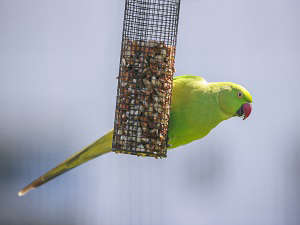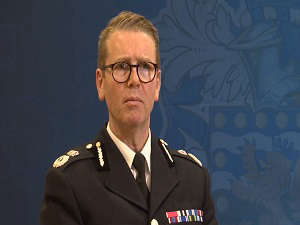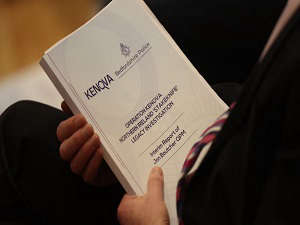
By Q Radio news
Child sex abuse offences involving an online element have increased by more than 80 per cent in the last three years.
308 offences were recorded by the PSNI last year - the highest number ever recorded here.
These offences include sexual assault, rape or sexual communication with a child where any element of the offence was committed online.
The charity is calling on the Northern Ireland Executive to prioritise child online safety by funding and fully implementing the Online Safety Strategy and Action Plan without delay, taking timely and meaningful action to fully protect children from harm.
Child sex abuse offences involving an online element have increased by more than 80 per cent in the last three years.https://t.co/KshVNkrbgf
— Q Radio News (@qnewsdesk) November 4, 2021
The charity is also calling on the Northern Ireland Executive to work closely with the UK Government to step up the ambition of the Online Harms Bill to ensure that its proposals comprehensively tackle an online abuse threat that is greater than ever before.
It says the Draft Online Safety Bill published in May needs to go much further to keep children safe and ensure it creates a practical response proportionate to the scale and nature of the child abuse problem.
The Bill is currently being scrutinised by a Joint Committee of MPs and Lords who are due to report the findings to Government in December 2021. Experts say the Bill presents a crucial opportunity to ensure legislation provides solutions that comprehensively fix the way platforms are exploited by abusers.
The NSPCC wants to see the Bill strengthened to address how abuse rapidly spreads across platforms and ensure it responds effectively to content that facilitates abuse.
A 16 year-old girl from Northern Ireland told one of our Childline counsellors:
“When I was 11 years old I met a 25-year-old guy online.
We talked every day and a few days before I turned 12 he asked me to date him.
I said yes.
From then our conversations became sexual.
It started with extremely disgusting jokes, but he also talked about molesting and raping me.
I was 11 and didn’t understand.
I eventually blocked him and no longer have any contact but this man shredded all of my confidence and I experience anxiety attacks and recurring dreams about him all these years later.”
A 17 year-old boy, also from Northern Ireland, told a Childline counsellor:
“I sent nudes to a person who then threatened to send them to mutual friends.
I am gay but my parents don’t know and I don’t want them finding out.
I just want the guy to no longer have the images so I don’t need to dread people finding out.
I don’t know what I can do?” *
Natalie Whelehan, Policy and Public Affairs Manager for NSPCC Northern Ireland, said:
“Children should be able to explore the online world safely but instead we are witnessing a dramatic and hugely troubling growth in the scale of online abuse.
The increase in these figures is truly shocking and shows the need for urgent action to protect children.
“To respond to the size and complexity of the threat, the Government must put child protection front and centre of its response to tackling online abuse by funding and fully implementing the Online Safety Strategy and Action plan in Northern Ireland and working closely with the UK Government to ensure the Online Safety Bill is sufficiently robust enough to prevent children suffering online abuse.
“Child safety must be the yardstick against which the actions of our Government are judged and robust measures are needed now to keep children truly safe today and in the future.”
The NSPCC has been calling for Duty of Care regulation of social media since 2017 and has been at the forefront of campaigning for the Online Safety Bill.
The charity is also encouraging any young people who may be worried that nude pictures and videos may end up online to report the material via the charity’s ‘Report remove’ function on their Childline website.
A world-first, the tool allows young people to flag images and videos with the Internet Watch Foundation (IWF) which will then review the content and work to have it removed if it breaks the law.

(Natalie Whelehan, Policy and Public Affairs Manager for NSPCC Northern Ireland)


 Bikers to descend on Westminster for veterans protest against Legacy Act repeal
Bikers to descend on Westminster for veterans protest against Legacy Act repeal
 Guidance sought over future of colourful parakeets in Belfast park
Guidance sought over future of colourful parakeets in Belfast park
 Woman released after questioning over pipe bombs in Co Down
Woman released after questioning over pipe bombs in Co Down
 Suspended chief constable will not be prosecuted over alleged sexual offences
Suspended chief constable will not be prosecuted over alleged sexual offences
 MI5 files not deliberately withheld from Stakeknife probe, review concludes
MI5 files not deliberately withheld from Stakeknife probe, review concludes